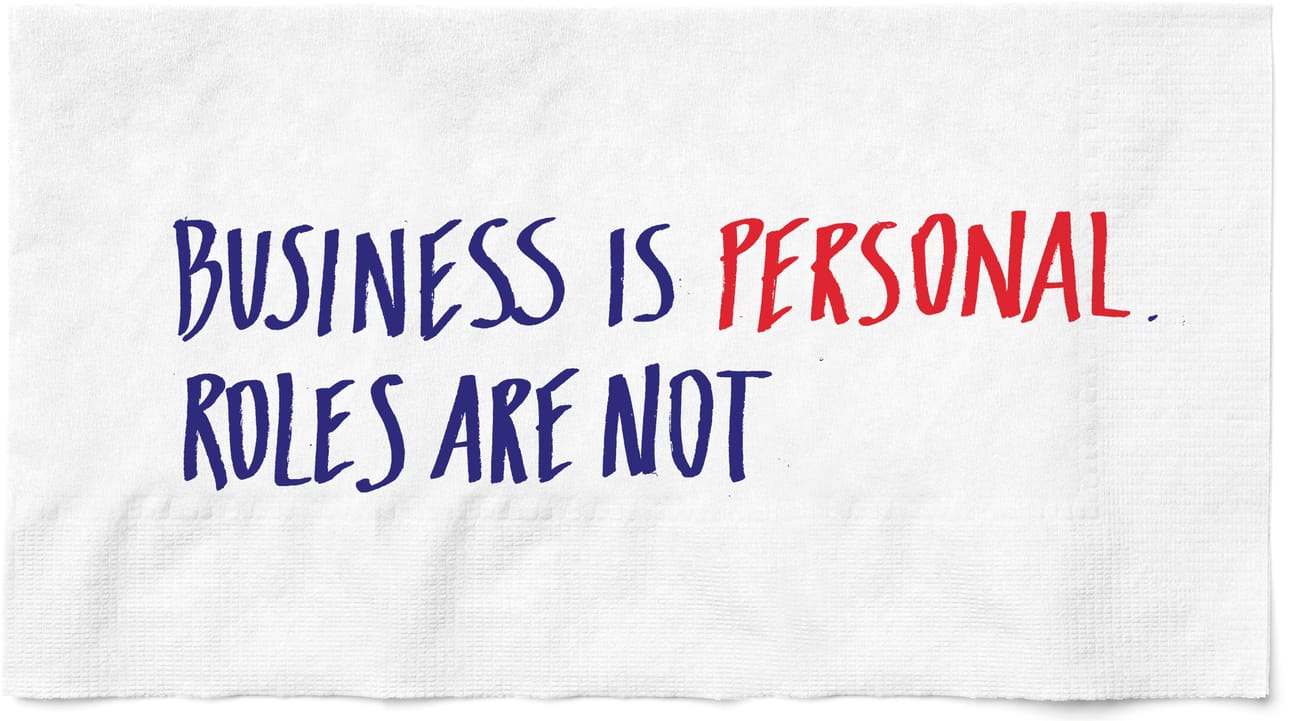
In this issue: Why Leaders have an obligation to give honest and direct feedback. Why let ourselves and everyone else down if we don’t give it. And why setting clear expectations is the key to success.
Experience
Most leaders are too damn scared to set clear expectations for their people, or tell them how they’re actually doing.
Gen X, my peers, seem especially terrified of giving it to younger folks straight.
Here’s the deal: our people report directly to us because they’re ‘below us’ in the org chart. That’s not just a status thing - being ‘higher’ in the org chart is a damn obligation.
We’re responsible for our people’s growth and professional future.
And if we don’t give them ‘direct’ feedback, we’re failing them.
It’s simple: here’s what you signed up for, here’s what you’re crushing, and here’s where you’re falling short.
If we’re too afraid to lay it out, what does that say about us as Leaders?
Reflection
I’ll tell you why we don’t lay it out. We’re scared.
Many of us are terrified of being direct with the very people who depend on us.
But the truth is even worse: it’s not just fear. It’s a lack of guts, lack of courage.
We make excuses: "I’m too busy" or "I don’t want to demotivate them." But it’s all BS.
Yes, I do it too. But when I step back and remember it’s my ‘job’ – I signed up for this – then, I often find the guts to have that hard conversation.
If I’m responsible for unlocking the potential of my team, I owe them regular, no-nonsense talks about what’s expected, what’s working, and where they need to step up.
Action
Here is how I think about how we all can align our actions around our Family ‘life’ in 2025, with ‘the more we put in, the more we get out’, as the North Star. (btw, this framework follows my Return on Marketing Career post)
Step 1, Get out of your Comfort Zone: What if you defined getting out of your Comfort Zone as the process of setting clear expectations and being brutally honest with your team. Holding back is the easy path. Yes, giving feedback – both positive and negative – puts you in the Fear Zone, but that’s where real growth happens. If you’re not pushing your people to improve, you’re not Leading. And if you’re not Leading, your team isn’t learning. And nor are you.
Step 2, Develop a New Skill: Learn how to remember that business is personal, but roles are not. Evaluate people based on the responsibilities they signed up for, not their personalities. Assess them on how they’re doing in their role, not how you feel about them as individuals. Make it part of your regular process. Then it will never seem personal.
Step 3, Create More New Value in your Role: Value comes from constant feedback – what’s working, and what needs improvement. Everyone has gaps. Your job is to point out where your team excels and where they can improve. This maximizes their impact and helps them perform at their best.
Step 4, Set Yourself Up for a Bigger Future Role or a Promotion: Leaders who move up faster mix positive and negative feedback to unpack their team’s potential. It’s not about the exact words (positive vs negative); it’s about the intent behind them. Leaders who are going places focus on growth and development, not on pleasing everyone. Don’t overthink it – be direct. Your people will appreciate knowing where they stand.

References
Nick Saban is a legendary football coach because he consistently builds winning teams. I believe he has a lot to teach people who lead teams outside the world of professional sport too.
As a coach, Saban led college teams to multiple national championships, making him one of the most successful Leaders in college football history. He has won seven national titles with the LSU Tigers and the Alabama Crimson Tide – the most by any coach in the modern era.
Coach Saban frequently discusses the importance of setting clear expectations and providing honest feedback to his players. He emphasizes that success comes from being process-oriented rather than focusing solely on results. And believes in creating a culture where every player knows exactly what is expected of them.
In Saban’s experience, great players actively seek out honest – sometimes tough – coaching. The best athletes want to hear the truth because they aim for perfection.
That makes it essential for any coach aiming for success at any level to provide constant, honest feedback to help players improve. Saban makes it clear that players should embrace this coaching if they aspire to greatness.
Here is a great example of Saban talking about setting clear expectations:

If you’d like to discuss your career journey with me one-to-one, please feel free to email me at [email protected] or message me on LinkedIn.
Thank you for reading.
If you know someone who you think would appreciate this newsletter, please forward it to them.

